Recovery Coaching in Connecticut Means Encouragement, Support, and Accountability for a Fulfilling Life in Recovery.
What is Recovery Coaching?
Recovery coaching is an emerging role in treating a person with a substance use disorder.
A recovery coach helps you connect with the support, encouragement, and accountability to improve your recovery and your recovery capital significantly.
When a Recovery Coach is enlisted as a primary agent for recovery, an individual’s odds of (not only) sustaining long-term abstinence but finding fulfillment in life without the need to use drugs or alcohol GREATLY improves.
A Professional Recovery Coach is a person who is in recovery and coaches others to alleviate the obsession to use drugs and alcohol and live a life of fulfillment. The Connecticut Community for Addiction Recovery (CCAR) Defines Recovery Coaches as “anyone interested in promoting recovery by removing barriers and obstacles to recovery by serving as a personal guide and mentor for people seeking recovery.”
Alternative titles for Recovery Coaches include Sober Coach, Sober Companion, Recovery Partner, and Recovery Companion. Life Coaches and Business Coaches can also include recovery coaching services when they provide recovery support services to help you transform into a life of fulfillment.
William White suggests that the primary role of a Recovery Coach is to provide
-
“Personal transformation resulting in peace with past and others; present life in good order;
-
Imagining and working towards a powerful, positive, and compelling vision of the future;
-
A manifestation of a unique and satisfying life in recovery.” (ROLE CLARITY MATRIX)
NonClinical, nondiagnostic, mentor
The role of a Recovery Coach is defined as being a non-clinical and non-diagnostic approach rooted in focussing on your strengths and readiness for change. Professional Recovery Coaches do not function as clinical consultants, therapists, or psychologists. In short, the Recovery Coach always meets you where you are at and your readiness for change.
This is not to be confused with ‘willingness’ to change. A person can be willing to and desire to change, but many barriers can be present to achieve the ‘readiness’ for change.
Client-directed, strengths, and evidenced-based
Furthermore, a Sober Coach suggests multiple pathways for recovery approach, while focussing on strengths and wellness. Strengths-based means the coach uses positive reinforcement by highlighting the internal strengths and resourcefulness of the clients instead of concentrating upon weaknesses, failures, and shortcomings.
A Recovery Coach or Sober Companion adheres to a system for recovery, which is Client-Directed. You are the expert about yourself, and this position is always respected. You decide what will or won’t be a part of your plan for recovery. The client chooses the pathway which most aligns with their strengths and values. This has proven to be elemental in motivating change.
Recovery coaching employs evidence-based coaching strategies to focus on you or your loved one’s substance use disorders, family members, significant others, and loved ones. Motivational interviewing improves how engaged you are with your process of recovery as well as educating you about the multitude of pathways for recovery. Evidence-based strategies incorporate empathy and compassion in the role of the Professional Recovery Coach.
Supporting and Suggesting Multiple Pathways for Recovery
Sober coaches support multiple pathways for recovery. You can incorporate a coaching service at any stage of the recovery process. You are starting in pre-recovery (harm reduction) on into long-term fulfilled recovery. The sober coach will support your choice of where to begin, what to work on, and help direct you towards your desired outcome.
Coaching helps you achieve long-term sustained recovery by focussing upon facilitating a stronger self-understanding and a higher level of activity. Working with a recovery coach is similar in employing the services of a personal trainer and nutritionist when seeking to achieve personal fitness and nutritional goals. Like a personal trainer, a recovery coach will assist you in meeting your personal and professional recovery goals much more comfortable and more quickly than you would on your own.
You are seeking to employ a recovery coach.
A recovery coach needs to follow a plan for his or her recovery. The critical element and foundation of recovery coaching are incorporating experience, strength, and hope into aiding your recovery process.
A coach may work as part of a team or individually. The Lighthouse Recovery 365 Coaching Program is an example of a group of recovery coaches who meet regularly to provide you with quality services, stay focussed, discuss progress, accomplishments, and barriers of each case, and hold each coach accountable to delivering ethical and the highest standard of coaching humanly possible.
When a coach is part of a team, there will be an element of case management, and the services provided to you will include insight and evidence-based coaching practices from all members of the team. Therefore when a coach is part of a group (s), he can consult with other coaches and his mentors to provide you with the best suggestions and solutions towards achieving your goals.
Choose Recovery Coaches who have attended and participated in a coach training program. Many training programs offer credentials through training seminars or self-study certificate programs. The Lighthouse Recovery 365 Coaches have completed training through CCAR and NYS OASAS Recovery Coaching training platform.
Check that the recovery coach affiliates with professional coaching organizations such as Recovery Coaches International (RCI), International Coaching Federation (ICF), International Association of Coaching (IAC), European Mentoring, and CCAR (USA)
Commit to Recovery Coaching.
Recovery Coaching can be incorporated into your plan for recovery in all stages of readiness. It is never too early to begin to work with a recovery coach. You and your recovery coach can aide in turning the statistical data around through achieving the life you perceive in long-term recovery.
If you or a loved one wish to speak with one of The Lighthouse Recovery 365 Coaching Programs coaches or have questions concerning Sober Living in Connecticut or Recovery Coaching in Connecticut, New Jersey, or New York (Long Island, New Your City, and Westchester Counties) Call Trey Laird 203-400-8065
Commit to your recovery.
Stay in touch and informed by following us on Instagram @thelighthousect.



